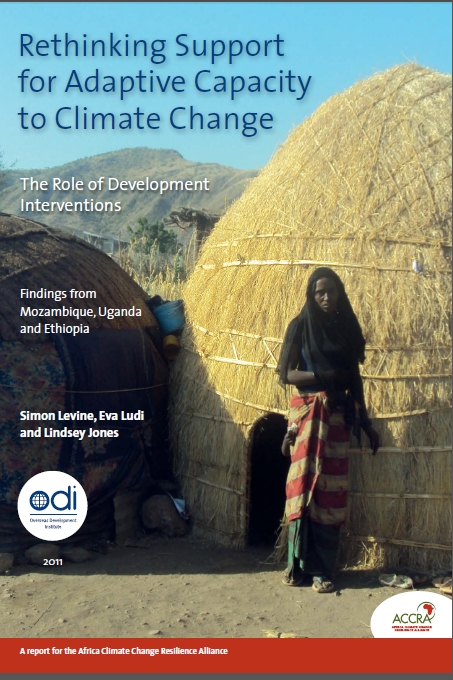
Rethinking Support for Adaptive Capacity to Climate Change
Introduction
Change is a constant in the lives of rural people in Africa. People have always had to cope with sudden shocks such as war, rain failures or food price spikes, and with longer-term stresses such as population increases, the degradation of natural resources and long-term decline in their terms of trade. These and many other changes will also be there in the future, but there is a more recent appreciation of change in the form of climate change. For most developing countries, climate change adds another layer of complexity to already existing development challenges, such as high levels of poverty and inequality, rapid population growth, underdeveloped markets, poor infrastructure and service provision, and weak governance systems (Smit et al., 2003).
Current climate models agree that there will be change, and that this change will vary greatly from place to place, but they disagree on the magnitude of that change, and they are also not able to tell us exactly what form that change will take at the local level (Royal Society, 2010). Climate change affects people directly (e.g. through changing rainfall patterns and increasing temperatures) and indirectly, by exacerbating other changes, including yields, world and local prices for crops, migration patterns, possible tensions over dwindling natural resources and disease patterns. These other changes are constantly in fl ux, magnifying the uncertainty around the effects of climate change.
Responding to climate change and related uncertainty is a principal development challenge. The impacts of observed and projected changes on global and regional climate are likely to have signifi cant implications for ecosystems and the livelihoods of the communities that depend on them (Tompkins and Adger, 2004). In light of this, it is vital that policy-makers and development planners understand how best to reduce vulnerability to climate change impacts, and ensure that communities have the capacity to adapt to changes over time.
Published by ODI 2011
111 Westminster Bridge Road, London se1 7jd, UK
Copyright © Overseas Development Institute, 2011
Readers are encouraged to quote or reproduce material from this report for their own publications, as long as they are not being sold commercially. As copyright holder, ODI requests due acknowledgement and a copy of the publication.
The views and opinions presented in this report are those of the authors and do not necessarily refl ect those of ODI, ACCRA, ACCRA consortium members and affi liates,
DFID or the alliance members of CDKN.
Designed by Nicky Barneby @ Barneby Ltd
Edited by Matthew Foley
isbn 978 1 907288 56 2


































